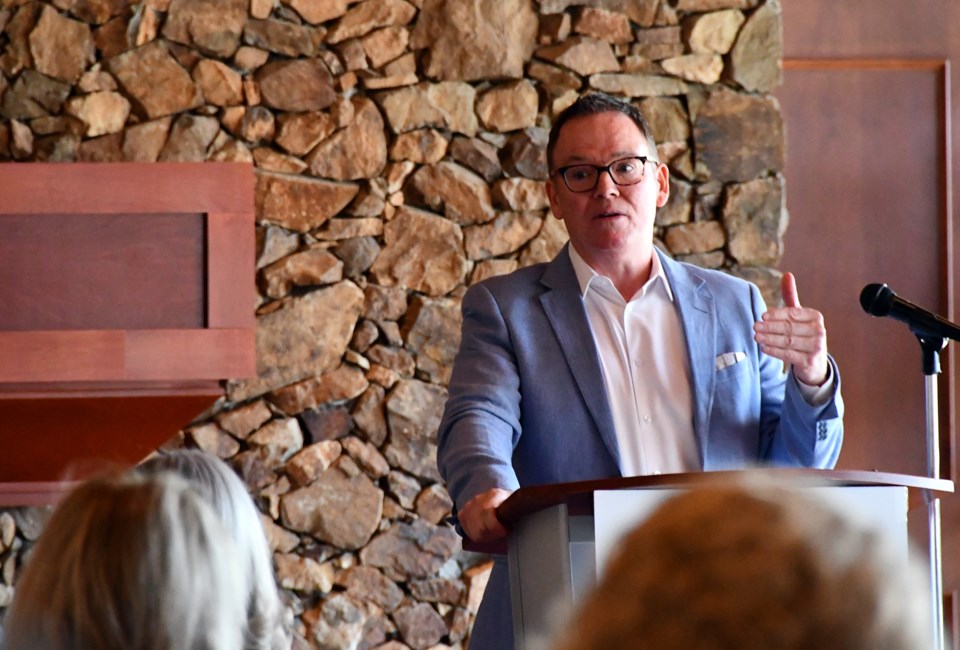Last Tuesday, I was invited to have breakfast with B.C. United Party leader Kevin Falcon.
The two of us grabbed a coffee and went for a walk in the James Bay neighbourhood that surrounds the B.C. Legislature.
Our conversation eventually turned to what a nuisance a resurgent B.C. Conservative Party had become for his own party, as poll after poll shows the gap widening between the two parties in terms of public support, with the B.C. Conservatives way out in front.
Falcon criticized that party in harsh tones, telling me the B.C. Conservatives were running candidates who held extreme right-wing views that he wanted no part of.
About an hour later, Falcon stood in a field across from the legislature to announce a forest policy plank in his party’s election platform. When a reporter asked him a question about the B.C. Conservatives, he again blasted the party for its extremist views.
Standing next to Falcon for the announcement was the B.C. United caucus forestry critic, Mike Bernier, who had no idea the dramatic turn of events that would soon engulf him and his fellow B.C. United candidates.
The next day, Falcon joined B.C. Conservative Party leader John Rustad at a news conference, where he announced he was “suspending” his party’s election campaign, effectively derailing his party candidates’ campaigns before they even really began.
The B.C. United board of directors had become increasingly freaked out by the party’s apparent financial problems and inability to raise money and so pressured Falcon into doing a complete 180 and unconditionally surrender to the B.C. Conservatives.
Welcome to B.C. politics, although I have never seen anything even remotely resemble the unprecedented events of last week.
I have witnessed plenty of caucuses throw their leader off the roof but until now I had never seen a leader throw an entire caucus off one.
In any event, we are back to the three-party political landscape that usually shapes B.C. politics: the NDP, a right-wing alternative party and the tinier B.C. Green Party.
The bizarre week ended late Friday with the release of an Angus Reid Institute poll that neatly outlined the many challenges facing the two main parties just weeks ahead of the election.
The two parties are statistically tied in voter support but there are both good and bad takeaways for two parties on various fronts.
The B.C. Conservatives clearly have some momentum right now and this poll was just the latest to show that about half the population are unhappy with the direction the province is heading in and may desire a change in government.
But elections are won by winning enough ridings to form a majority, and the poll is the latest to show the B.C. Conservatives have the most support in vast areas of the province that have relatively few electoral ridings.
This is to the NDP’s advantage. They remain way ahead in public support in Vancouver, Burnaby, the eastern suburbs, and Â鶹´«Ã½Ó³»Island – home to more than 50 ridings.
But this was also the latest poll to show the public’s support for Premier David Eby’s personal brand may be waning at the worst possible moment.
Meanwhile, with B.C. United finally taken off life support and no longer part of the scene, we are in for an old-fashioned polarized election showdown. It will be intense with lots of fireworks and heated attacks from all sides.
I expect I’ll grab a coffee with Eby and Rustad in the weeks ahead. I’m reasonably confident neither will “pull a Falcon” and blow their party up the very next day.
Keith Baldrey is chief political reporter for Global BC.



